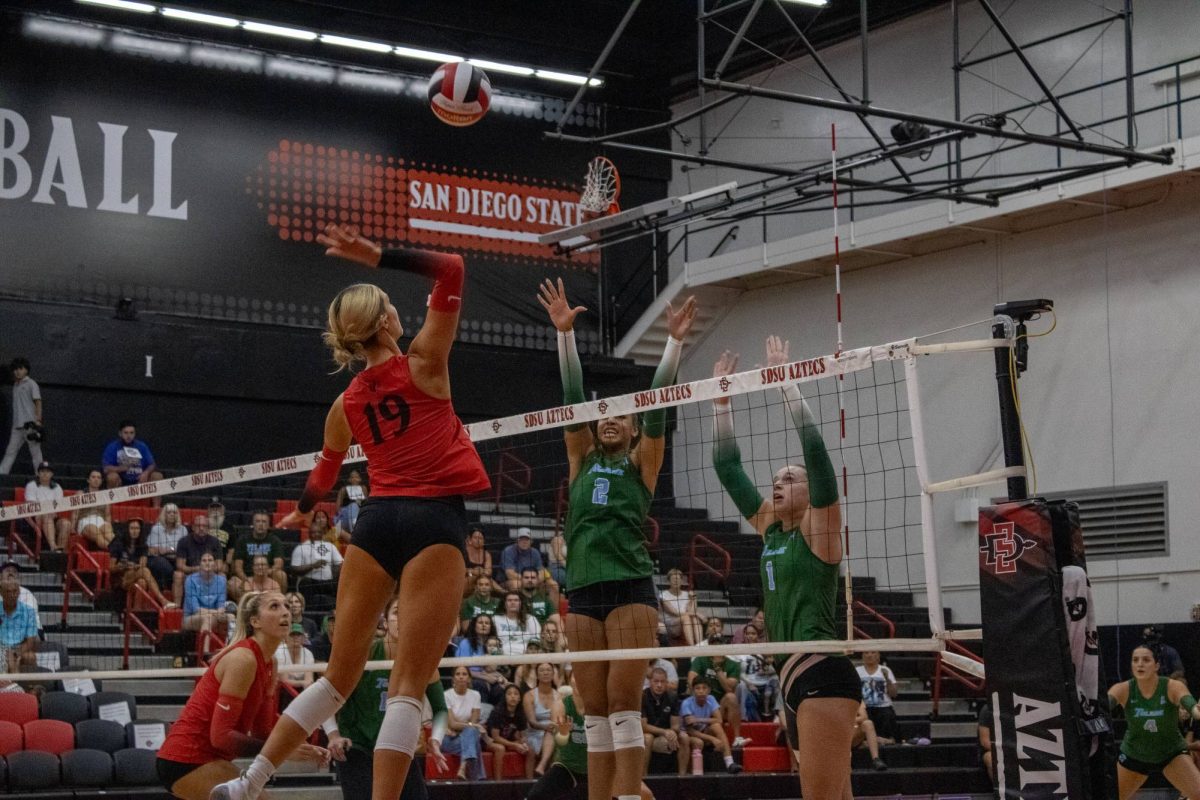San Diego State students are facing higher parking permit fees despite a decrease in parking availability over the past decade, according to a state audit of the university’s parking program.
The audit, conducted between fiscal years 2008-09 and 2017-18, reported a rise in parking permit fees from $135 a semester to $168, even as the number of available student parking spaces decreased by 850, or almost 6%. With the cost of a day permit now $174 per semester, the increase in student parking fees over the last 11 years totals nearly 29%.
Meanwhile, the audit found SDSU held over $28 million in surplus parking fees and fines at the end of the last fiscal year.
The audit concluded SDSU students “tended to have less parking available than faculty and staff,” with some parking lots at complete capacity during peak hours. Data provided by the audit found SDSU sold over 48,000 student permits during the 2017-18 school year, despite only having 14,197 available spaces.
Even with the reduction in total student parking spaces on campus, the audit clarified SDSU’s transportation management plan found the university had not reached practical capacity for campus parking.
Additionally, the audit examined SDSU’s construction of a new parking structure at South Campus Plaza, used primarily by customers of the building’s restaurants and businesses. Even though the additional parking structure did not increase the overall availability of student parking, SDSU used “students’ permit fees to pay for the facility’s construction,” the audit said.
In an online statement, the university said the South Campus Plaza parking structure was intended for customers and campus visitors who support the building’s tenants between semesters and pay hourly parking fees.
Additionally, the university said South Campus Plaza was sustainably designed to accommodate pedestrians, public transit and bikes to meet SDSU’s commitment to providing alternative modes of transportation.
“The university is encouraging and, in some areas, seeing a reduced reliance on vehicles on and around campus,” the SDSU statement said.
Beginning in the fall, SDSU freshmen living in student housing will not be permitted to park on campus, a move the university said will decrease emissions and increase parking spaces available for commuters.
Three other CSU campuses — Fullerton, Channel Islands and Sacramento State — were also randomly selected for the state audit of campus parking programs. The three other CSU campuses also maintained a surplus in parking fees and fines while also increasing the availability of student parking spaces.
The audit said SDSU’s total surplus was the highest among CSU campuses, at over $456 million at the end of the last fiscal year.
Bank accounts held by the CSU system outside the state treasury were also subject to review. The audit indicated the CSU “failed to fully disclose” $1.5 billion in reserves — made up largely of unspent tuition fees — to students and elected officials as it nearly doubled annual tuition rates for students over the past decade. The CSU had set aside $400 million of that surplus for economic uncertainty, according to the audit.
A statement from CSU Chancellor Timothy P. White said the report had mischaracterized the reserve funds as discretionary, saying tuition increases and state funding were necessary because the surplus could not have been used to fund ongoing system expenses.
White also said the report mischaracterized the system’s surplus as undisclosed. “The report’s incorrect claim that the CSU failed to fully inform its stakeholders about fund balances overlooks dozens of presentations of publicly available reports that included information about these funds,” the statement said.










